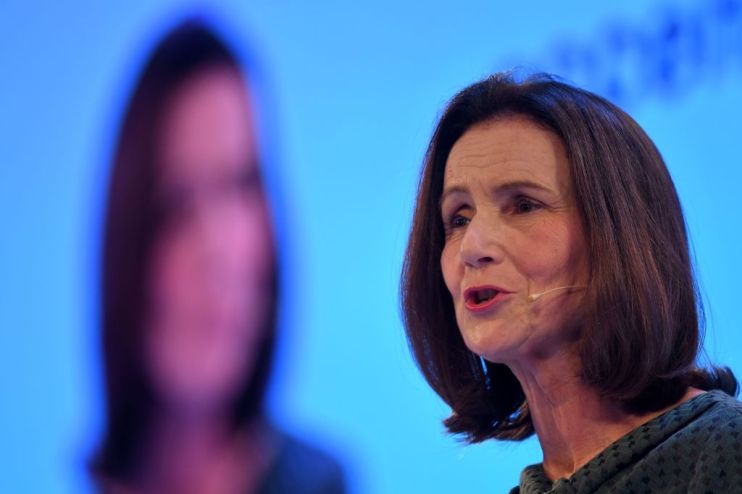CBI urges government to extend business loans scheme

The CBI has urged the government to extend the Coronavirus Business Interruption Loan Scheme (CBILS) until November, as part of a wave of proposals to keep businesses alive as the UK faces its worst recession on record.
The business body, which represents around 190,000 UK companies, today called on the government to extend the deadline for chancellor Rishi Sunak’s business loan scheme beyond August for a further three months.
“We are deeply concerned about rising unemployment and the survival of many firms in hard hit sectors over the summer and into the autumn”, said CBI director-general Dame Carolyn Fairbairn.
“The survival of many businesses in hard hit sectors still hangs in the balance over the summer as schemes begin to wind down. These firms cannot wait until the autumn for further action,” she added.
CBILS
CBILS, which sees the government underwrite 80 per cent of the value of a loan, has been hugely valuable to businesses already facing cashflow challenges, providing more than £10.5bn to 50,482 businesses in the UK so far.
But lending data released yesterday showed lenders have only approved 51 per cent of applications through CBILS, even as overall lending rose above £20bn.
The CBI warned that the UK faces a second wave of businesses who may need support “particularly in sectors such as engineering services and manufacturers of capital equipment where order books for late 2020 are looking weak”, and called on the government to extend the window for new applications to CBILS.
Support schemes and VAT cuts
The proposal is part of a raft of measures put forward by the CBI to ensure the government protects British jobs and livelihoods as the UK emerges from months of lockdown.
Other measures set out by the CBI included extending grant support schemes for small and medium sized businesses (SMEs) and extending business rates relief in England to mid-sized businesses in all sectors for the next three months to help supply chains recover.
The business body also called on the government to immediately defer VAT payments for businesses in the second quarter of 2020, and to make targeted VAT cuts in enabling sectors.
Sunak is said to be considering slashing VAT for a temporary period to boost the economy, following pressure from former chancellors Lord Alistair Darling, Sajid Javid and Ken Clarke to do so.
Young at heart
“This package of business support should be backed by a major jobs scheme focused on helping young people into employment, delivered at speed and scale,” the CBI said.
It suggested that the Coronavirus Jobs Retention Scheme —known as the furlough scheme — should be extended beyond its October deadline “to stave off unnecessary job losses”, and that the government ups funding in schools and universities to avoid generational inequality.
The business collective drew comparisons with Germany, France and the US, who have all launched further packages of financial support to bolster their economies.
“They are seeking to stay ahead of the curve of deep and lasting recession; we must do the same,” said Fairbairn.
Property
The CBI also pointed to rocky territory for the British property market, which all but ground to a halt during the pandemic, causing a knock-on effect in other key sectors such as construction and business services.
It called on the government to temporarily reduce Stamp Duty Land Tax for the lowest end of the market by increasing the tax-free allowance for six months.
The CBI also urged Downing Street to use to £3.8bn allocated for a Social Housing Decarbonisation Fund in the Tory manifesto to allow housing associations to use funding to improve energy efficiency.
The government should “introduce a national energy efficiency programme to retrofit homes, backed by grants or loans to encourage energy efficiency improvements in private homes”, the CBI added.
Recession
It comes as the UK faces its “deepest recession in living memory,” after months of lockdown forced business to shutter and ground the economy to a halt.
Earlier this month, the OECD found that Britain’s economy is likely to suffer the worst damage from the coronavirus crisis of any country in the developed world. A predicted slump in the UK’s national income of 21.5 per cent for 2020 will surpass tumbles seen in France, Italy, Spain, Germany and the US, the OECD said.
Last month, the chancellor conceded that the UK is set to face a “significant recession”, as figures showed the economy shrank two per cent in the first three months of the year. Economists have now abandoned hoped for a V-shaped recovery from the crisis in the UK.
The IMF yesterday said the UK’s budget deficit for 2020 is likely to be 12.7 per cent of GDP, or £270bn, as the UK’s furlough scheme and other emergency packages take a toll on public finances.
“While more firms are starting to reopen, demand is weak and hugely uncertain. Many firms are struggling to see how they can be profitable with social distancing in place”, said Fairbairn.
“If you take these actions now, building on the success of your economic strategy so far, the UK can stay ahead of the next wave of this crisis and ensure our economy remains globally competitive.”
“By working together, business and government can help foster a strong recovery, reducing inequalities and supporting a dynamic economy and sustainable future.”
Before the Open: Get the jump on the markets with our early morning newsletter